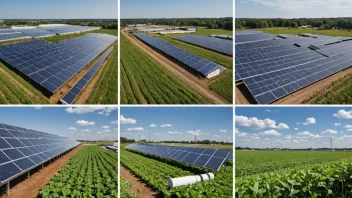The field of robotics has seen remarkable transformations in recent years, driven largely by academic research and scientific discovery. From autonomous vehicles to robotic assistants, the advancements in technology are reshaping industries and everyday life. This article explores how research is influencing robotics, highlighting key trends, breakthroughs, and the implications for the future.
One of the most significant areas of research in robotics is artificial intelligence (AI). AI algorithms enable robots to learn from their environments, making them more adaptable and efficient. For instance, researchers are developing machine learning techniques that allow robots to improve their performance over time through experience. This is particularly impactful in manufacturing, where robots can optimize production processes without human intervention.
Another exciting trend is the integration of robotics with the Internet of Things (IoT). By connecting robots to the internet, researchers are creating systems that can communicate with each other and share data in real-time. This connectivity enhances the capabilities of robots, allowing them to perform complex tasks, such as coordinating deliveries in logistics or monitoring environmental conditions in smart cities.
Medical robotics is another field where research is making significant strides. Surgical robots, for example, are being developed to assist surgeons with greater precision and control. Studies have shown that these robots can reduce recovery times and improve patient outcomes. Additionally, researchers are exploring the use of robots in rehabilitation, where they can aid patients in regaining mobility and strength through guided exercises.
Social robotics is also gaining traction, focusing on creating robots that can interact with humans in meaningful ways. Research in this area examines how robots can provide companionship, assist the elderly, or even support mental health. The development of robots that can understand and respond to human emotions is a fascinating frontier, promising to enhance human-robot interactions.
Environmental robotics is another critical area of research, where robots are being designed to monitor and protect our ecosystems. Drones equipped with sensors are being used to track wildlife populations, assess the health of forests, and even detect pollution levels in oceans. This research not only contributes to environmental conservation efforts but also provides valuable data for scientists studying climate change.
In conclusion, research is at the heart of the evolution of robotics, driving innovations that are transforming various sectors. From AI advancements to the integration of IoT, the potential applications of robotics are vast and varied. As researchers continue to explore new frontiers, we can expect to see even more groundbreaking developments that will shape the future of robotics and its role in society.






